
Don’t Look Back is showing at FrightFest on Friday, 23rd October.
Kurt Cobain once said, “If you’re a really mean person, you’re going to come back as a fly and eat poop”. In many ways, this seems unfair to the humble fly, but it points to a belief in karma – a conviction embedded in diverse cultures, religions and social structures since the dawn of humanity. The need for us all to believe that what goes around comes around is a comfort in a turbulent world, feeding our human need for justice, even when it is sadly lacking. The subject of karma has long held a place in horror, latching onto our need for some supernatural justice in a world where evil people and bad things often go unpunished. It’s here where Don’t Look Back, by the writer of Final Destination, Jeffrey Reddick, finds its voice in a film that boldly explores the role of the bystander in events and situations that result in tragedy.
I recently caught up with writer, producer and director Jeffrey Reddick to talk about the making of his feature-length directorial debut while also reflecting on the themes at its core.
Hi Jeffrey, thank you for taking the time to talk to me about your new movie Don’t Look Back, which will be shown at FrightFest in the UK. In 2014, you released the short film ‘Good Samaritan,’ how did this pave the way for the feature-length Don’t Look Back?
The funny thing is, the short of Good Samaritan came after I had written the script for what would become Don’t Look Back. So I took the character of Nathan and created a whole story around him, basically to demonstrate that I could direct, and I thought that would open a lot of doors for me, but magically it didn’t! I just had to go with the producer, who wanted to finance a film independently with me, instead of waiting for other people to come forward. So, while I think the short is very cool, it’s definitely more of a supernatural horror compared to the mystery thriller that became Don’t Look Back.
There must have been numerous challenges in bringing Don’t Look Back to the screen; how long did it take to get the project off the ground?
It’s been a long time, years, and years of stop-and-start with finance coming and then falling through. So I don’t want to say precisely how long because I don’t want to date the project, but let’s just say it’s been a long time coming!
Am I right that you only had 22 days of filming? And what pressures did that create?
Our 22-day shooting schedule was actually pretty good for an indie film. I know a lot of movies that have 18 days or less, so I was fortunate to get 22. But, there were still challenges, including the number of locations that we had to shoot, all of which led to set moves with all of our equipment. That definitely ate up a lot of our time and put pressure on us to get as much done as quickly as possible. However, I was also fortunate to have two cameras for this film, which helped enormously. But yeah, just getting all the different location shots was the biggest challenge.
READ MORE: TWO HEADS CREEK: IN CONVERSATION WITH JORDAN WALLER
Don’t Look Back threads supernatural terror with far more human horror. Can you tell us about the origins of the story?
My inspiration for Don’t Look Back started with the story of Kitty Genovese during the 1960s, and while I hadn’t yet been born when the news hit, it became an urban legend of sorts. It was about how these people had watched her being assaulted in a courtyard with nobody helping; it haunted me, making me wonder what I would have done in the same situation. We see a lot of TV shows where shocking scenarios are created to see how people react, and that fascinated me. So when I decided to direct my first feature-length picture, I wanted to do something with a universal theme, something everybody could relate to, and the theme of witnessing a shocking or violent happening and our behaviour during and after is something that feels relatable and real.
You open the film with a powerful reflection of the daily videos that circulate on social media of violent acts filmed by bystanders. Do you think social media has led to a world where violence is often viewed from a distance as entertainment?
All the videos in the opening credits are real, and in the process of putting them together, I became troubled by how many videos were out there. In many ways, social media has become a beast that feeds off viral and shocking content; it helped to create a world where people pull out their phones instead of calling 911, their instant recording an opportunity for viral fame. So I guess, in many ways, it has become a vicious and ugly cycle between the media and the public. I am really troubled by our lack of empathy for each other, and when people ask me what I’m most afraid of, it’s not supernatural creatures or serial killers but how regular people can so quickly turn on each other.
Don’t Look Back is your feature-length directorial debut; that must have been scary.
Oh, yeah, it was scary, and I freely admit I got a little cocky due to having been on many film sets; plus, I had a short under my belt, so I was like, you’ve got this. But you don’t know what you don’t know until you’re on the ground shooting, especially with an indie film, where you have challenges that you can’t resolve with money. It was a great learning experience! And I was so lucky to have such a great cast and crew on the journey with me. I will never be one of those directors who try to take all the glory for finishing a film because, without your cast and your crew, you’re nothing, really. While the director may steer the ship, it’s the cast and crew who bring your vision to life.
READ MORE: SWAN SONG: IN CONVERSATION WITH TODD STEPHENS
Kourtney Bell’s performance is one of sheer strength and power; how did you come to cast Kourtney in the role?
I am so fortunate to have found Kourtney. When I saw that she was on our list of auditions, I Googled her before she came in and found a website she had created of clips from all the shorts and commercial stuff she had done. On watching these, I saw facets of Caitlin in each clip, so I kind of knew before she came in that she fit the bill. But, of course, you can’t cast somebody before you have met all the talent! Kourtney is an amazing and talented actress, and I think she does a wonderful job of carrying the picture.
Don’t Look Back places strong African-American characters and actors at the heart of the story, so let’s talk representation. What still needs to be done to create a genuinely diverse and representative film industry?
You know, representation is something that I’ve been fighting for throughout my entire career. When I wrote the story for Final Destination Two, I wrote the lead character, Kimberly, as an African-American. I knew the first movie lacked representation. But for some reason, when you talk about diversity, people still get this weird knee-jerk reaction. I guess people need to understand that when you send out a casting call for a role, especially a leading man or woman, the default that every casting person has in their head is still a white actor or actress. So, in every one of my films, we’ve never had a person of colour submitted for a leading male or female role; it’s like that’s just not the default setting, and even when you send out a casting notice that says open to all ethnicities, 99% of the submissions will be white actors and actresses.
There is such a vast pool of talent out there from every race, and for my first film, I wanted to find the best lead actress from the entire diverse pool of talent. So, I sent out casting notices, asking for African-American, Latino and Asian actresses. But, it’s like you have to almost go out of your way to search for diverse talent, mainly due to studios not automatically thinking about people of colour in lead roles. I had a really great opportunity here to showcase a wonderful lead black actress in her first feature-length role, and, you know, that was really thrilling for me.
Regarding what needs to be done, I think I answered that a little bit in my thoughts earlier. But, there is also something around our natural reflex that needs challenging. People often envision a white person as the lead in a book or script they are reading, and, you know, that’s what we need to all move beyond; after all, a character can surely be brought to life by any person, no matter our difference – we are all human beings at the end of the day, and we all have the same wants, needs and feelings. Hollywood thrives on what is successful, and I think both Black Panther and Get Out proved that diverse stories could be box office winners; hopefully, this only increases a desire for authentic stories while also building representation in lead roles no matter race, disability or sexual orientation. I think representation is as important as telling stories about different communities.

It would be easy to label Don’t Look Back as a ‘karma’ based horror, but grief, loss and a need for perceived justice thread through the narrative.
You’re absolutely right! When I made the film, I knew many people would expect a Final Destination-style horror, so I kept telling our marketing people that it was important to sell the movie as a mystery. I wanted audiences to be unsure whether the forces in the film were supernatural or human while dealing with broader themes of grief, loss and faith.
I can’t have you here and not ask about Final Destination. Did you ever anticipate your X-Files-inspired screenplay would become one of the defining horror films of the past twenty years?
You know what? As a horror fan, I am just humbled by the impact that the movie has had over the years. It was such an honour working at New Line Cinema for 11 years, the studio that produced my favourite film, A Nightmare on Elm Street and went on to produce Final Destination. I guess I always hoped the movie would go on to have sequels, but I never imagined that it would become part of the cultural zeitgeist. I mean, I’ll be out when I hear people comment on something that happened using the phrase, “Oh, that was a final destination moment”, and it just makes me smile; I’m like, Holy crap! My movie is a cultural thing! I didn’t expect it to become what it has become, but I’m so grateful and humbled as a fan and as a creative person that it has, and I’m so appreciative of the fans. It’s just really cool.
READ MORE: ALL MY FRIENDS HATE ME: IN CONVERSATION WITH TOTALLY TOM
Finally, what horror movies inspired you as a young person? And what advice would you have for aspiring young screenwriters?
You know, the first movie I always talk about as my inspiration is A Nightmare on Elm Street. That was the film that made me fall in love with the genre. Up until Elm Street, my friends and I would just watch horrors for the blood and scares; we were young, and, you know, we thought it was cool, but Elm Street was different. It was a movie with a strong female lead in Nancy Thompson (Heather Langenkamp) and a phenomenal villain in Freddy Krueger, and when that was coupled with amazing special effects, I fell in love with the genre. I think another touchstone movie for me is Night of the Living Dead, which featured a black lead while carrying a powerful message about our fear of others. I also loved Candyman, a movie that dealt with inner-city poverty and an interracial love affair, and you know, when I found out Tony Todd was going to be in Final Destination, I was like, ‘Oh my God! Candyman is going to be in my movie!’

And your advice to aspiring writers?
The biggest piece of advice I would give aspiring screenwriters is to write. Procrastination is one of the worse things you can do. Use the energy and passion of youth while it’s there. You know It’s hard to sustain that as you get older, so if you’re a young screenwriter, tap into that passion and use it, but also remember that you’re only just starting and have room to grow. The truth is, no matter how good you think you are, your first couple of scripts won’t be great. I hate to say that, but it’s the truth! Writing is a craft you have to learn; think of it like singing – a singer spends years tuning their voice to perfection, and writing is no different. The biggest stumbling block I see in many young writers is the assumption that their first script will be perfect.
But, on a more positive note, we have iPhones that shoot in 4K and access to technology that I never dreamed of growing up. Therefore, It’s so much easier to make stuff on your own, so grab some friends and create stuff. Surround yourself with good, supportive people who encourage you to grow as an artist; negative people will only undermine you and cut you down.
Don’t Look Back is showing at FrightFest on Friday, 23rd October; book tickets here.
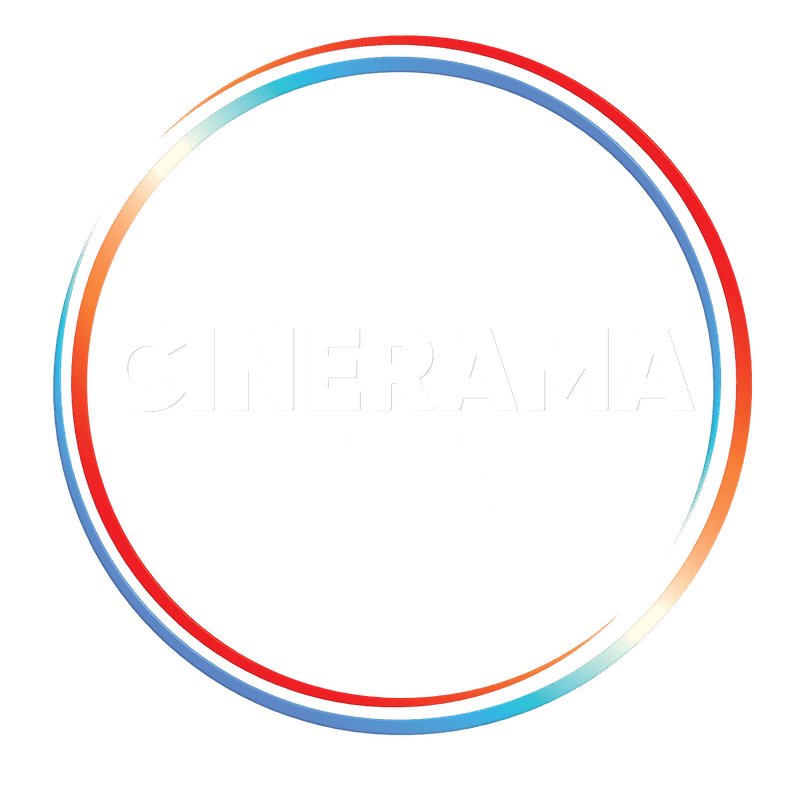
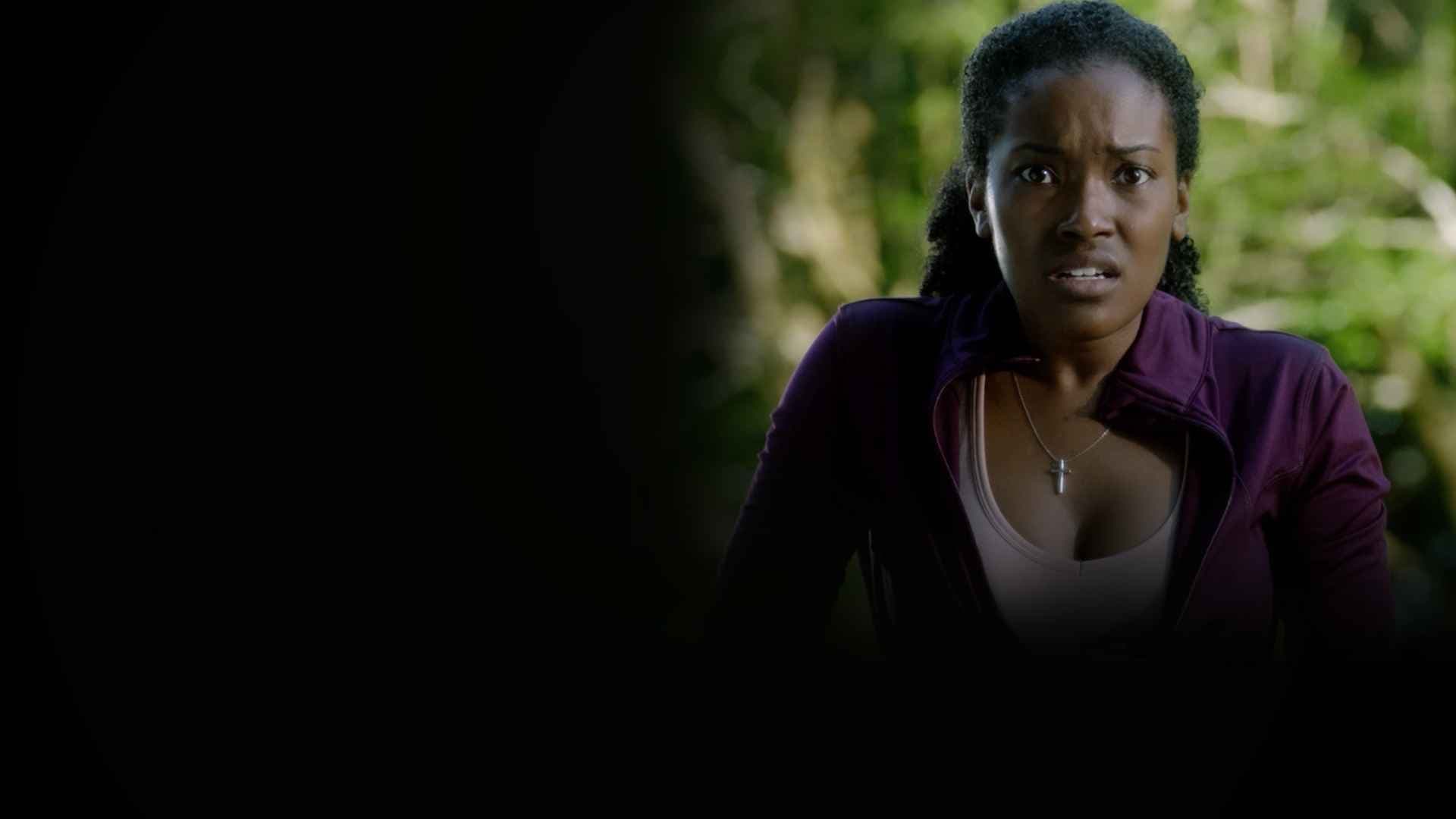

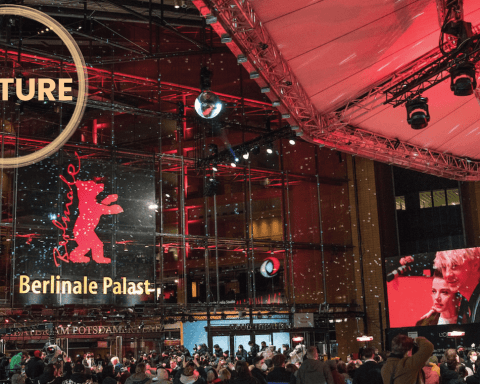

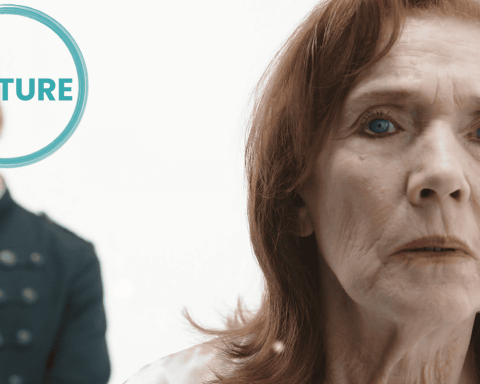

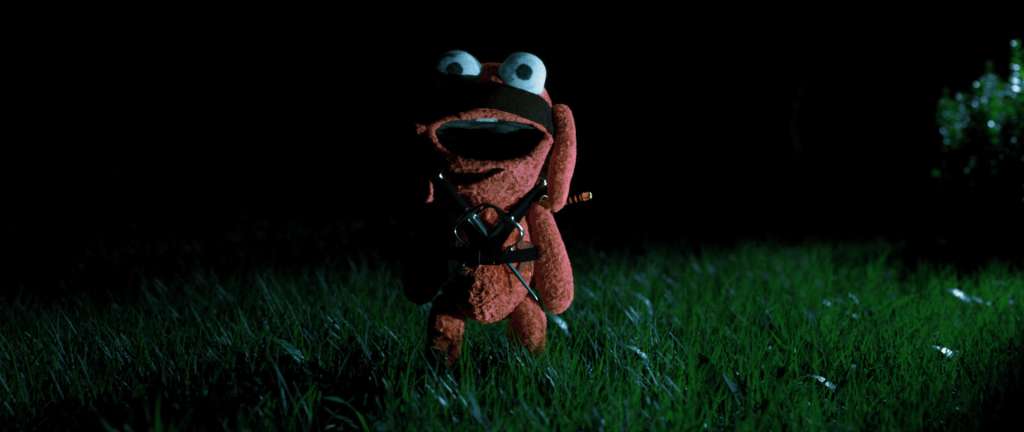
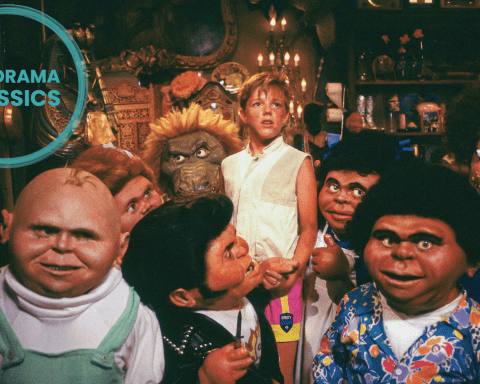

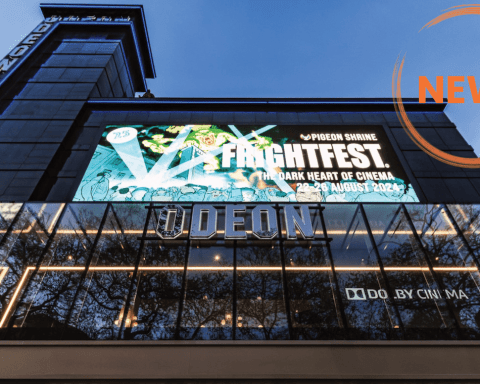
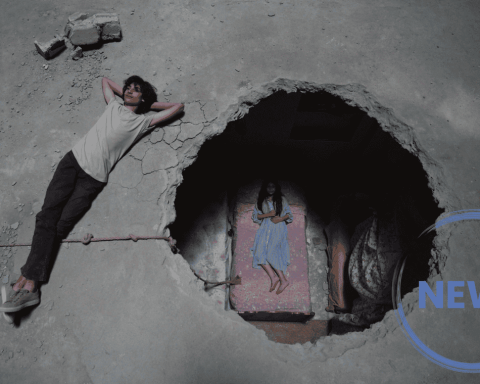

You must be logged in to post a comment.